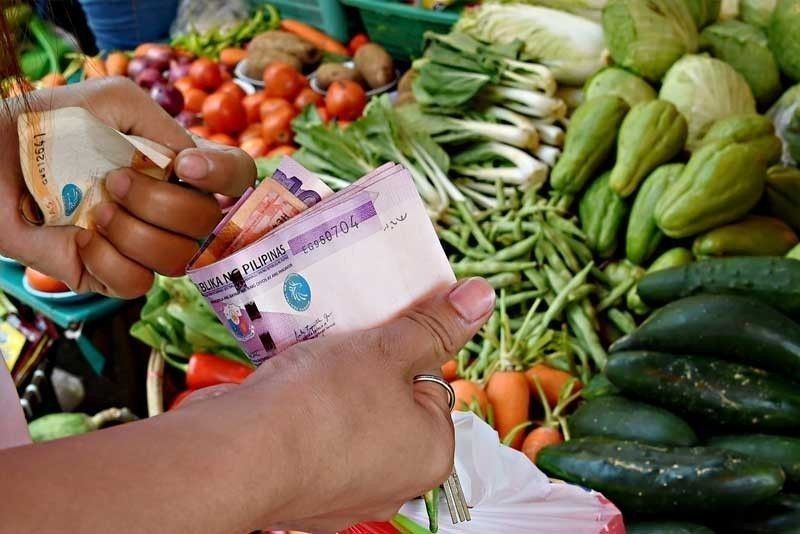January 2019 inflation eases to 10-month low of 4.4%

Full impact of fuel excise tax hike still to be felt
MANILA, Philippines — The increase in consumer prices nationwide eased for a third straight month last January as food and beverage costs grew slower while the full effect of the second round of fuel tax hike has yet to be felt, the Philippine Statistics Authority (PSA) reported yesterday.
Headline inflation – the rate of change in the average prices of goods and services typically purchased by consumers – slowed to a 10-month low of 4.4 percent in January 2019 from 5.1 percent last December. This was the slowest since inflation hit 4.3 percent in March 2018.
National Statistician Lisa Grace Bersales said the easing in the annual rate was driven mainly by the slower growth in the prices of the heavily weighted food and non-alcoholic beverages, alcoholic beverages and tobacco, and transport items.
“I believe that not many gasoline stations have already imposed excise tax in January. So this report may not yet include the full effect of excise tax,” she said in a briefing yesterday.
Bersales said the inflationary pressure brought about by the full implementation of the second round of fuel excise tax hike may be tempered by the management of food supply, particularly on rice.
“There will, of course, be an effect when all gasoline stations are already implementing the (second round of the fuel) excise tax, but as to how this will effect inflation, we still cannot say,” she said.
“But the effect of fuel excise tax is not only by itself, there is an interaction effect. So there is no room for complacency, there are areas that the government has to look into,” she added.
The enactment of the rice tariffication law, she said, would help bring down the price of rice.
For its part, the Bangko Sentral ng Pilipinas (BSP) said easing inflation gives monetary authorities more leeway to manage interest rates after a tightening episode last year that saw key rates rise by 175 basis points.
BSP Deputy Governor Diwa Guinigundo said inflation has steadily decelerated for the third straight month after peaking at a near-decade high 6.7 percent in September and October last year.
“This latest positive outcome in inflation management gives the BSP more space to review its current monetary policy. With modest demand pressures, monetary policy could be slight on the brake. But the BSP needs the benefit of time and more observations,” Guinigundo said.
He added the BSP still needs to evaluate and assess the impact of the tightening cycle wherein interest rates were raised by 175 basis points to prevent inflation from spiraling out of control.
The BSP controls inflation primarily by moving its policy interest rate. Adjustments in the interest rate for the BSP’s overnight reverse repurchase (RRP) facility, the primary monetary policy instrument, typically leads to corresponding movements in market interest rates, thus affecting the demand by households and firms for goods and services. This, together with the aggregate supply of goods and services, determines the level of prices.
The central bank also slashed the reserve requirement ratio (RRR) by 200 basis points to 18 percent from 20 percent, releasing P190 billion in additional liquidity into the financial system to support the country’s expanding economy.
“The BSP will be in a more strategic position to one, ascertain the impact of the previous move to reduce RRR and the subsequent tightening it had to implement in the face of potential second round effects and disanchoring of inflation expectations and two, chart the future path of monetary policy,” he said.
Guiniguindo said easing inflation clearly validates the lack of persistence of supply price pressures experienced for the most part of 2018 when oil prices surged by 60 percent with similarly sharp upturns in the prices of rice, meat, fish and vegetables.
“Demand pressures are clearly receding given the sustained moderation in core inflation. The government’s non-monetary measures to ensure ample supply of key food commodities turned the tide against food price upsurge,” he added.
The BSP official said the central bank’s monetary tightening further sealed the efforts to tame inflation to eventually bring it to the two to four percent target of both the government and the monetary authorities by preventing the propagation of supply pressures into second round effects like higher wages and transport fares.
“Higher policy rates also helped keep inflation expectations anchored to the BSP’s forecasts and targets,” Guinigundo said.
Based on its latest assessment, the BSP sees inflation easing to 3.2 percent this year and three percent in 2020 after accelerating to 5.2 percent last year from 2.9 percent in 2017 due to elevated oil and food prices as well as weak peso.
“The BSP is in an urgent mode of further validating its current forecasts of 3.2 percent for 2019 and three percent for 2020 in the larger context of current and expected liquidity and credit conditions, prospects of economic growth and the impending slowdown in the global economy,” Guinigundo said.
He, however, said he does not expect an immediate reversal of the tightening cycle last year even if inflation reverts back to within the two to four percent target.
“It is ready to change course when warranted,” he said.
ANZ Research said the BSP’s Monetary Board would keep interest rates unchanged as the moderation in core inflation (excluding volatile items) to 4.4 percent in January from 4.7 percent in December suggests that underlying price pressures are easing.
“January data supports the BSP’s view that inflation is likely to glide lower in the coming months. As such, we expect the BSP to keep rates unchanged at its meeting on Thursday,” ANZ Research head Khoon Goh and junior economist Mustafa Arif said.
- Latest
- Trending





























